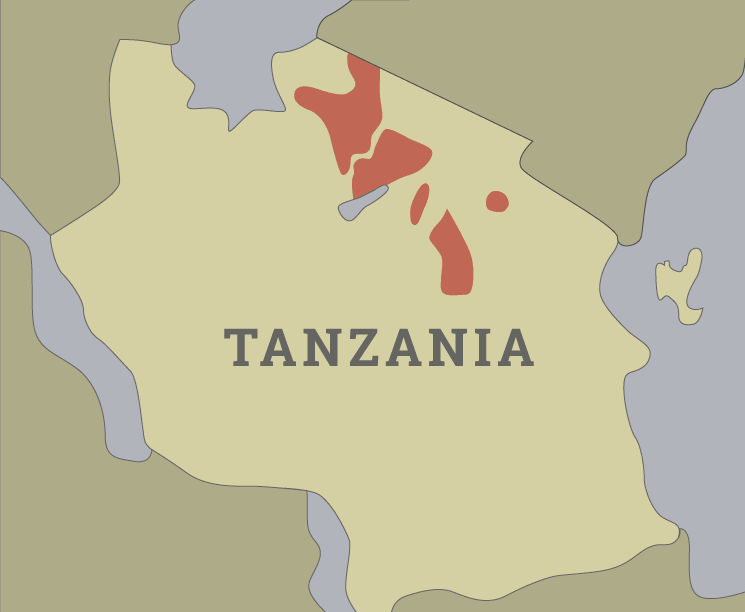What Camera Should I Take?
Ahhhh, the million dollar question, "What camera should I take?" Most of you reading this already have a camera. Some of you may be pros. Some may be filmmakers or serious amateurs. Others of you may be iphone photographers. Almost everyone, however, turns their attention to their camera when an African safari is on the horizon. Fortunately, you live during a time where there are a lot of camera choices out there. And almost anything you buy today, even the cheapest cameras... are superior to the best of what was available just a decade or so ago. Myself, I shoot primarily with Canon and Sony cameras. But that's just me. Nikon, Fuji, Pentax, Olympus, Panasonic, etc. all make great cameras. And there are new companies getting into the game every year.
The bigger question should be "What features should my camera have?" That's really the important question to ask before heading to Africa. And there are some important things to consider.
First, start with asking yourself how you envision using the awesome pictures you are going to come back with. Will you blow them up and display them on your wall? How big? Do you want to cut together a video with them? Maybe produce a photo book? Or maybe you're a social media fan... Facebook, Instagram (or whatever the next big thing will be). I'm going to assume you will be blowing them up for a nice big print on the wall. Maybe something around 16 X 20 inches. By setting the bar here, you're covered for all of the other things listed above.
There are a lot of great cameras out there, DSLR's, Mirrorless, Point and Shoot, Bridge Cameras and of course... your smart phone. If you've been looking at something specific this is a good time to hit the "ASK JEFF" button on this page. Yes, I'm that guy that reads those photo blogs and I "demo" a lot of cameras. I keep up with it and I can get specific with whatever you are looking at. But it's pointless to try to do that with every camera under this short heading.
One thing to keep in mind is that the Serengeti is a BIG place. A big wide open place. And the vehicles are not allowed to leave the well worn dirt roads you will be driving on. That's not necessarily a bad thing. It respects the animals and there are roads that lead up to most of the good wildlife spots. Still, think telephoto lens. We'll get into this more in the next section but from a camera standpoint it probably eliminates your smartphone and most point and shoot cameras from the mix as your primary camera for this trip. Taking a camera that allows for interchangeable lenses opens up the possibilities of taking along a telephoto lens that you can either buy or rent. That's a big plus. All pro photographers use these and a whole lot of amateurs as well.
Recently, however, several of the camera companies have released what they call "bridge cameras". These are mirrorless cameras with a fixed lens... but usually a fixed lens with a very long zoom range. We took Sony's version of this with us this year and I was super impressed with it.
Today, cameras are computers - and complicated ones at that. All those bells and whistles are nice to have but here are the main things you want to look for. First, about 18-24 megapixels. Some cameras have more, some less. But this will get a nice picture for your wall. Second, a motor drive (which today are typically built in). In Africa things move quickly. It's nice to fire off a burst of shots so you don't miss anything. Some of the cameras today can shoot amazing bursts of 15-24 shots per second. There is a time and place for a motor drive with speed. Just remember that even though it sounds cool to fire them off, you will be looking at a LOT of similar shots when you get home. So use it sparingly. Autofocus, of course, is a must... but all cameras have this now. Stabilization. You'll be hand holding that camera most of the time in Africa. Auto stabilization is really nice to have. Video. Today's cameras almost all shoot video now with the flip of a button. It eliminates the need to bring along a dedicated video camera. 4k is the big talk right now, 8k will be the next be thing. Confusing I know. Unless you are a pro, you are probably fine with standard high definition video which is referred to as 1080. That's the resolution ABC, NBC and CBS send to your house and it's pretty darn good. The more important thing here is slow motion. Make sure your camera can shoot 60 or 120 frames per second in video. You'll want those silky smooth slow motion shots... they're very cool. Flash? Probably not a big deal in Africa, unless you want to shoot at night. And you can't be in the Serengeti at night unless you are in camp. That's a rule.
If your goal is to buy a new camera, the salesman at the camera store is going to throw a lot of big words and tech at you when you start looking for a camera to take to Africa (where he has probably never been). Things like "full frame sensors, APS-C sensors, magnified sensors, RAW images, color profiles, WI-FI, dynamic range, blah blah blah". Again, hit the "ASK JEFF " button when you start boiling things down and I'll help you cut through the bull with your specific camera.













